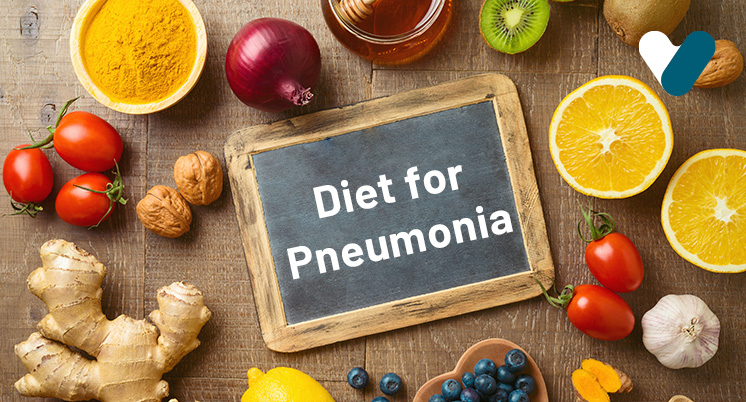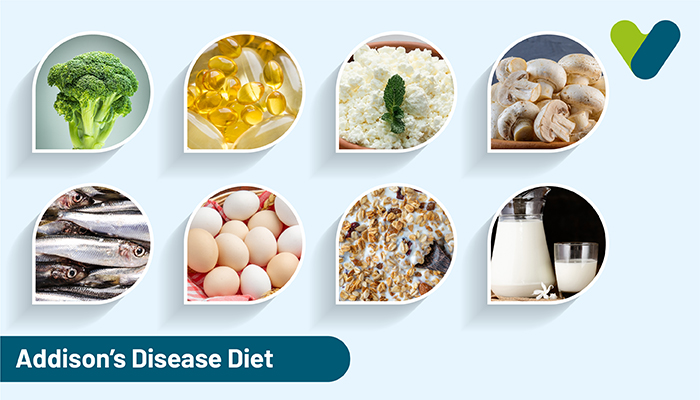Pneumonia is a pulmonary infection caused by pathogens such as bacteria, viruses and fungi. Under normal conditions, the body's intact immune system is able to prevent germs from colonising the respiratory system. However, your immunity can weaken if you contract infections. Under such conditions, the immune system fails to efficiently fight germs. The respiratory tract becomes inflamed while cellular debris fill the air sacs. Predominantly considered a type of lung infection, pneumonia causes symptoms like cough, shortness of breath, fever, fatigue, nausea and vomiting in both adults and children. Recovery from pneumonia ranges from two weeks to a month or longer, depending on the severity and type of pneumonia. While you're recovering, it is important to consume foods that boost your immunity. Addition of certain foods to a pneumonia patient’s diet can help alleviate pneumonia symptoms.This article focuses on an ideal diet for pneumonia patient.
Foods to Eat During Pneumonia
A pneumonia diet should include foods and drinks that boost immunity and reduce the symptoms. The following are readily available items you can find in your pantry to facilitate faster healing and are part of a healthy diet for pneumonia patients.- Honey Honey has been traditionally used to relieve cough in both adults and children. You can consume honey to relieve cough and cold caused due to a lung infection. Honey also helps to relieve sore throat caused by a continuous cough. Honey is rich in flavonoids that have anti-inflammatory properties. It also comprises vitamin C, a type of ascorbic acid and antioxidant that protects your body from free radicals that aid infections. That said, honey is not safe for infants aged less than one year. Adults and children above a year old can consume honey with warm lemonade or ingest a spoonful of honey twice a day.
- Turmeric Turmeric is a common spice found in almost every Indian household. Turmeric has also been used as a traditional Chinese medicine to promote blood circulation and remove blood stasis. It contains curcumin which is a natural anti-inflammatory substance. Turmeric also has mucolytic properties that aid in mucus removal from the airways in the lungs. You can make turmeric tea by brewing turmeric powder in warm water. Another easy way to consume turmeric is by adding it to honey. One spoonful of honey and turmeric twice or thrice a day should relieve cold and inflammation.
- Ginger Ginger has several medicinal properties, including anti-inflammatory, antimicrobial, antioxidant, anticoagulant and more. Ginger contains a broad spectrum of antimicrobial compounds like terpenoids, phenols and its derivatives. It reduces chest pain caused by airway and air sac inflammation in the lungs. A warm cup of ginger tea every day can help relieve congestion. You can also make homemade cough drops by mixing honey, turmeric and ginger.
- Whole Grains A pneumonia patient's diet must include whole grains like barley, millet, buckwheat, brown rice and other nutrient-rich grains. Whole grains contain fibres that improve gut health. A healthy gut leads to a healthy immune system. A diet rich in whole grains increase thymus cells (T-cells) – a type of white blood cells that make up your intact immune system. Consumption of whole grains also leads to the reduction of Enterobacteriaceae that are responsible for triggering inflammation.
- Protein Proteins present in meat and fish are made up of amino acids. Amino acids activate the natural killer (NK) cells that prevent the spread of microbial infection, making for excellent additions in a pneumonia patient's diet. They also activate T-cells and bursa-derived cells (B-cells) that produce antibodies to fight bacteria and viruses. Moreover, amino acids respond to oxidative stress by regulating inflammation-preventing antioxidants. While the body produces these components naturally, you need to supply more amino acid for optimal immune function. Besides meat and fish, eggs, soy, beans, legumes and some vegetables are rich protein sources.
- Cruciferous Vegetables Cruciferous vegetables are packed with antioxidants and fibre. They contain phytonutrients that not only reduce inflammation but also lower the risk of cancer development. Cauliflower, radish, turnips, cabbage and broccoli are easily available cruciferous vegetables. Grean leafy vegetables like kale, mustard greens, Bok choy, etc., are also rich nutrient sources. Cruciferous vegetables are low in calories. You can steam them with little salt and consume them.
Foods To Avoid In Pneumonia
The list of foods to avoid in pneumonia patients to prevent pneumonia symptoms from worsening includes the following:- Cold Foods Cold air is bad for inflamed airways. It can worsen the pneumonia symptoms and is best avoided. You should thus avoid cold cuts as they are preserved using nitrate. When nitrates convert to nitrite and interact with protein, they create cancer-causing nitrosamines.
- Salty Foods Salt is necessary for the body. However, excess salt can retain water and may inhibit the body's germ-fighting abilities. Fried and junk food tend to be salt-heavy. Therefore, having a bland pneumonia diet is recommended.
- Saturated Fats Products containing saturated fats are also among the foods to avoid in pneumonia. Saturated fats increase cholesterol levels and cause build up in the arteries. During pneumonia, the blood flow is already hindered due to disruption in the transfer of oxygen. So, avoiding saturated fats from your diet is the best course of action.
- Dairy Products While dairy products are excellent protein sources, they are top foods to avoid for pneumonia patients. Milk contains casomorphin. Casomorphin can increase mucus production in the airways. Excess mucus production causes breathing difficulties like dyspnoea and tachypnoea.


